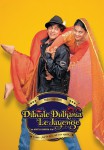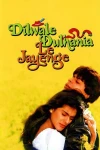Bombay Begums: The Queens Who Err
Bombay Begums has a strong premise and a weak plot but the only reason I’m rooting for it is because it doesn’t pedestalize women. Spoilers ahead...

Netflix’s Bombay Begums was released in March 2021 and since then has been the centre of controversy. Produced by Alankrita Shrivastava, Bombay Begums follows the story of 5 ambitious women who navigate through the daily complexity of life and the challenges that come with being a woman in charge of her own life. I found the show a bit slow and sloppy initially and for me, it only picked up in the last two episodes. However, regardless of the show moving at a snail’s pace, I would like to highlight one appreciable aspect of the show- Bombay Begums doesn’t pedestalize women.
Stories of five women from different walks of life who have different social realities are knit together in Bombay Begums. These women are raw and their stories portray the real difficulties that women face in everyday life. They are far from being ideal women and their characters aren’t shown to be larger than life. These Bombay begums make mistakes and have flaws just like any other normal human being.
Bombay Begums doesn’t expect perfection from a woman. Rani and Fatima try to suppress a sexual harassment complaint against a prominent employee of the bank. Both women have different reasons to do so – Rani for power and Fatima due to ignorance. But in the end, they strive to rectify their mistakes and take proper action against the sexual predator. This representation of women doesn’t put them in binaries of good and bad. It allows women to be perceived as having shades of grey. Another example is Lily. Least privileged out of the 5 Bombay Begums, she doesn’t have the luxury to pursue the path of truth and justice. When Lily chooses a better life for herself over ensuring justice for somebody else, the show doesn’t look down on her. She is no goddess of truth and that is okay.
I have mixed feelings about Ayesha in Bombay Begums. I don't completely like or dislike her and that is what makes her human. Switching between homes, she hooks up with her ex who is already in a relationship. The process of figuring out her sexuality makes it difficult for her to commit to one person. Despite all her flaws and dilemmas, she doesn't lose her spirit in life. The #MeToo angle in her story is authentically depicted and I appreciate the makers of the show for taking a hard and honest look at a difficult situation.
Shai, the youngest Bombay begum goes through infatuation and heartbreak in the course of her story. She mainly exists in voiceovers in the show. Her relationship with her step-mother, Rani, goes from aversion to acceptance through the course of the episodes. Shai’s character is the reason why Bombay Begums attracted controversy. She snorts drugs in the show and is even admitted in the hospital for overdosing - all this at the age of 13. This depiction of a teenage girl exploring herself in a dangerous and uninhibited manner without her sexualised portrayal is seldom seen on screen. However, Rani doesn’t shun her and rather helps her get through it while also giving Shai some solid advice about dealing with heartbreak.
Bombay Begums shows women making the mistakes that patriarchy allows men to make in a normalised manner. A classic example of this is infidelity. After going through love, disappointments and betrayals, the women learn and grow through them. At no point does it feel like the showrunners are condemning the begums, instead they’re humanising them and providing space for women to have flaws.
In Bombay Begums, women are each other’s rivals and also each other’s greatest strength. We see women planning and plotting but also being understanding and empathetic. Bombay Begums gives us female characters who are not very likeable in the beginning but their character arc comes a long way, just like that of any male protagonist. All in all, the web series cuts women some slack and that is a welcome move for the representation of women in Indian media.



.jpeg)
.jpg)
.jpg)



.jpeg)

